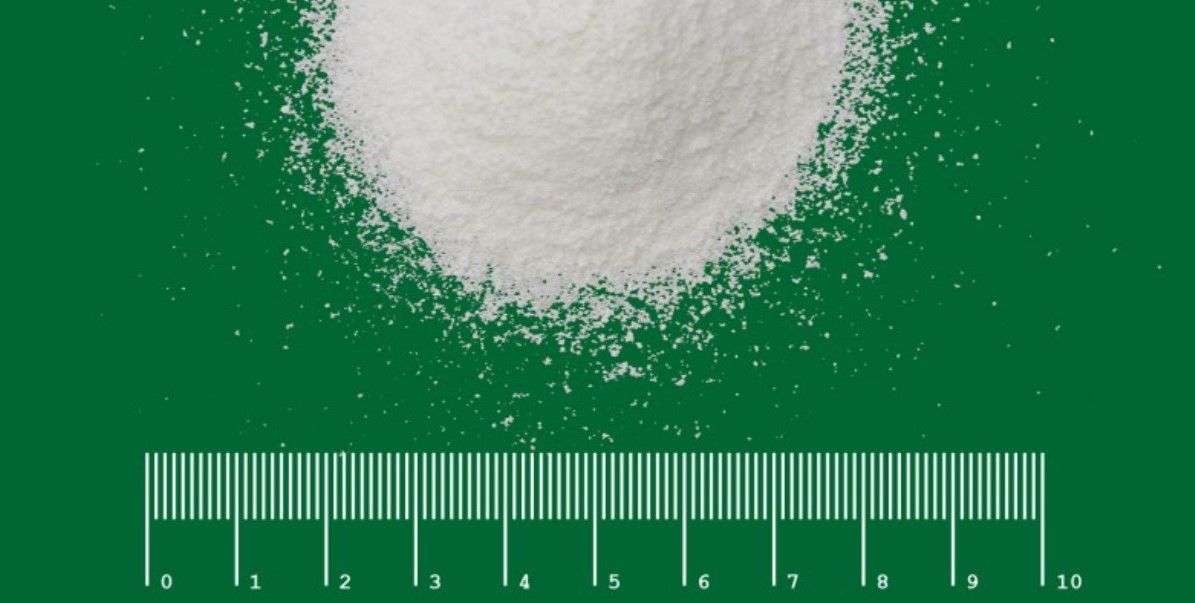Sodium tripolyphosphate, also known as STPP, has a multitude of uses across industry and the manufacturing sector. However, like many industrial chemicals the quality of the material dictates its possible applications and therefore its value.
What is Sodium Tripolyphosphate?
STPP is a soluble phosphate produced from a mixture of disodium phosphate and monosodium phosphate. It is used in food processing and preserving, in detergents, as an acidity regulator, and in water treatment.
It is sold as a white or colourless powder or crystal.

There are numerous factors in the process for producing STPP that play a role in the final quality of a product. These include:
The Importance of pH
The degree of pH neutrality during the production of STPP is key to obtaining a superior quality product. Under ideal conditions the pH should be controlled to a value of 3, although in practice a value close to this may produce a better result.
As a rule, a low level of acidity creates a high phosphorus, high water-soluble, and low pyro sodium product alongside other properties which will reduce effectiveness.
Water Content
As any competent chemist knows, the volume of water in a solution has a major impact on its concentration. In the production of STPP, a low water content in the neutralization solution during the polymerization phase in the furnace will create a product with a higher concentration.
Furthermore, as the water vapour from the neutralization solution is drawn away by air flow, the pressure of that flow is also key to regulating water content and therefore product quality.

Spray Guns and Furnaces
The most common production method for STPP involves a neutralised mixture which contains monosodium phosphate (NaH2 PO4) and disodium phosphate (Na4 HPO4) being sprayed into a furnace for polymerization. The angle of the spray guns has a very direct impact on the quality of STPP produced.
In brief, the wrong angle can result in a short polymerization time, which will result in an increase in sodium pyrophosphate, a reduction in phosphorus, and a lower content of sodium tripolyphosphate.
Alternatively, if the atomization angle of the spray guns is perfected then an ideal time is allowed for polymerization leading to a better-quality STPP product.

The speed of the polymerization furnace is also crucial, as if it is too fast, then the mixture will be held in the furnace for a shorter time, causing incomplete polymerization. According to the process experts at the journal Industry Today, this can create a situation where, “While the content of pyrophosphate increases, the total amount of phosphorus increases with the high water-soluble matter. The quality of the product will be unqualified.”
Similarly, the pressure of the high-pressure pumps that force the neutralized mixture into the polymerization furnace also affects atomization and can lower an end product’s density.
STPP Quality
The quality of any raw material is incredibly significant both in terms of price and its possible application. This is particularly true for sodium tripolyphosphate when used as a food additive.

Like many raw materials, costs have fluctuated significantly over the last two years due supply chain disruption from the global health pandemic as well as geopolitical, trade wars between China, the EU, and America. This has been evident in price rises for yellow phosphorus, caustic soda, and phosphoric acid.
While some STPP producers have managed these rising costs by switching to cheaper production methods, this can lead to a drop in quality that may prohibit a product’s suitability for use in food additives, ceramics, detergents, and even fire-resistant materials.
Despite the shortcomings of some suppliers, the global market for STPP has been estimated to reach $8.1 billion in 2022 – a sure sign of the healthy demand for this versatile chemical.
AG CHEMI GROUP (who sponsor this website) has been supplying industrial ingredients, such as STPP, to manufacturers all over the world for the past 27 years.
During this time, they have established a reputation for reliability and trustworthiness. Delivering the high-quality raw materials that manufacturers need in Asia, Europe, Africa, and the Americas.
If you would like to know more about sourcing good-quality sodium tripolyphosphate or other industrial chemicals then please visit AG CHEMI GROUP or contact Timur on +420 777 227 387 or Timur.Khafizov@agchemigroup.eu
Photo credit: Anna Shvets from Pexels, Pexels, Tiger Lily from Pexels, Pixabay, & AG CHEMI GROUP